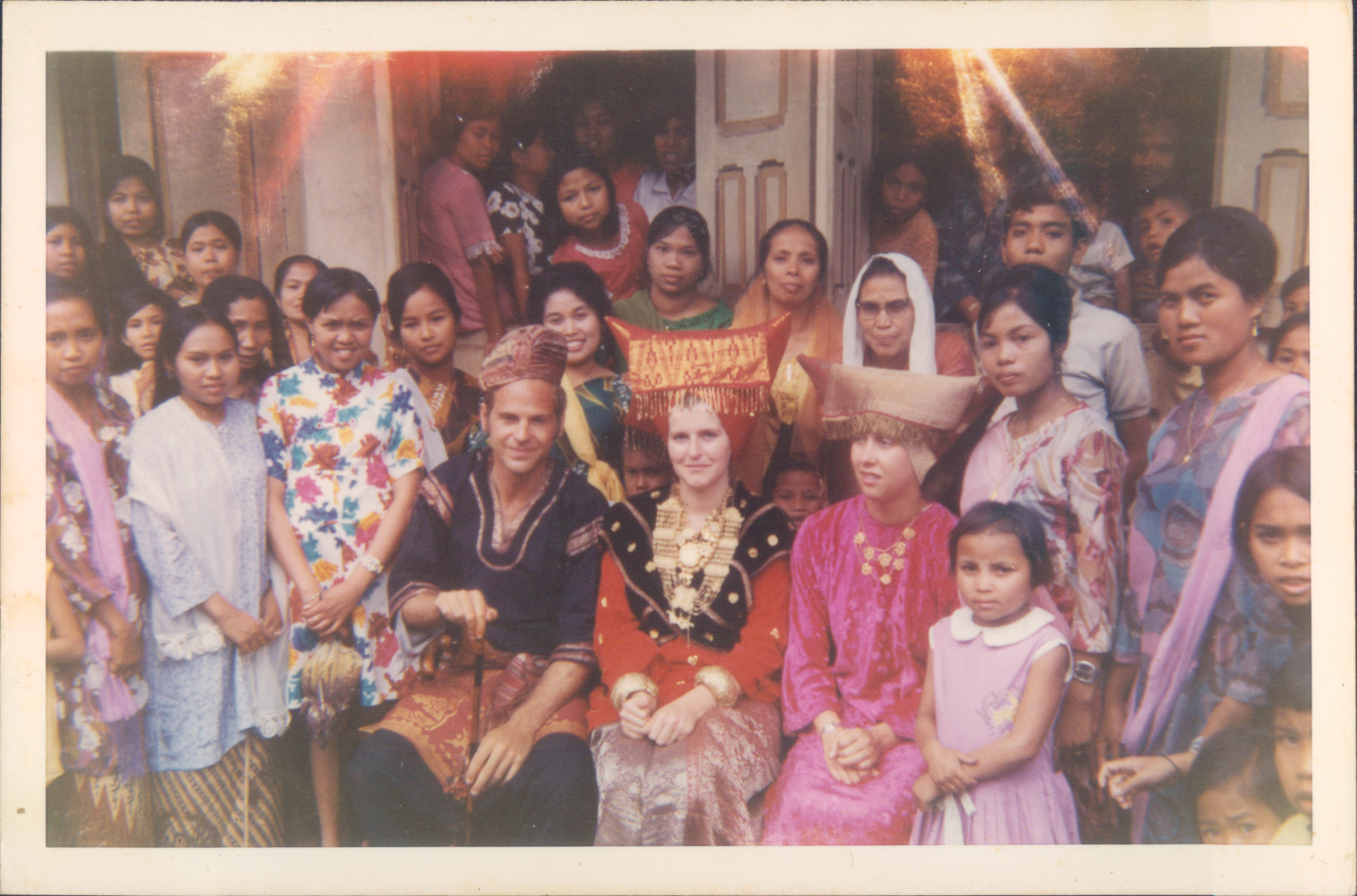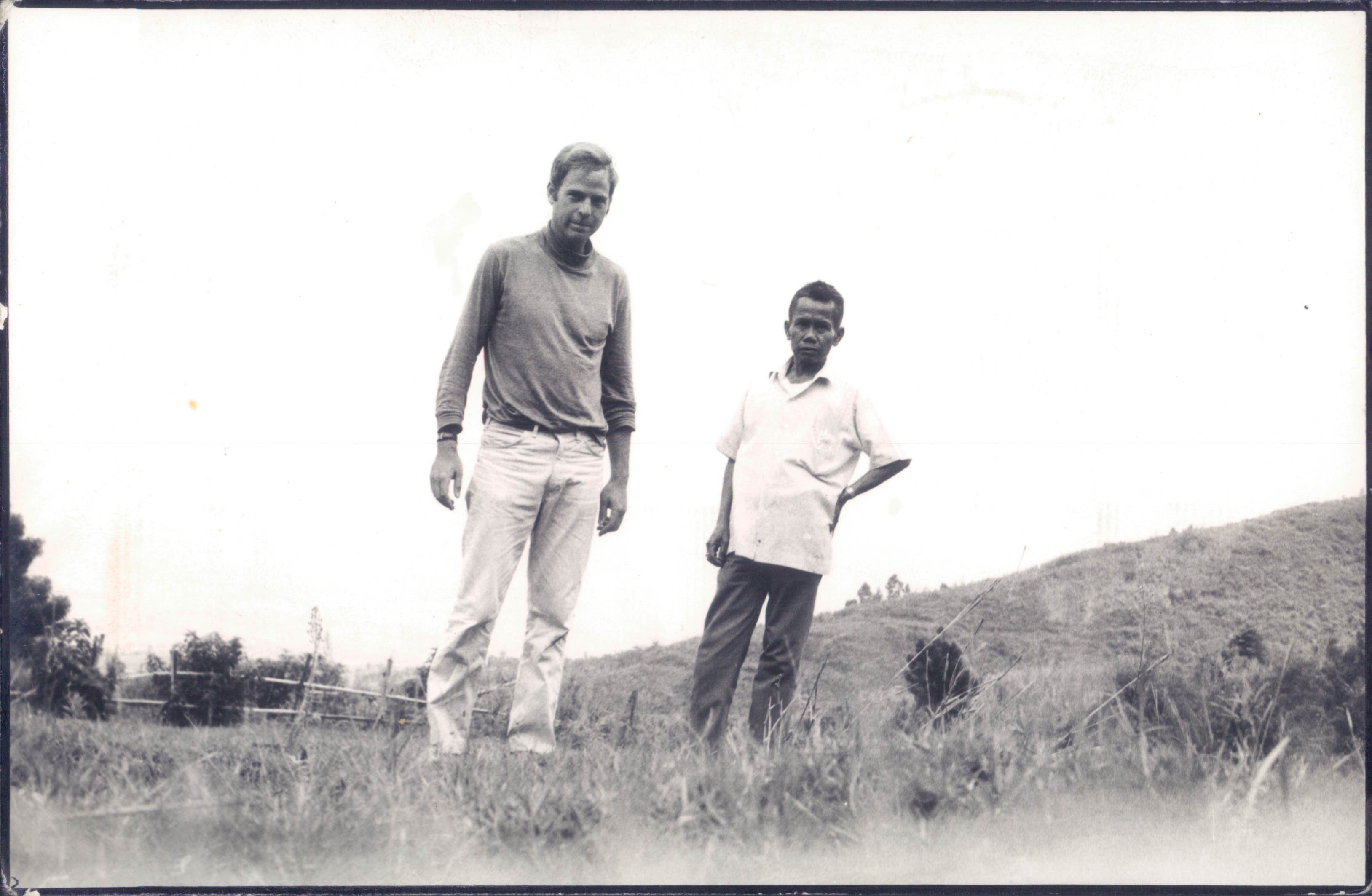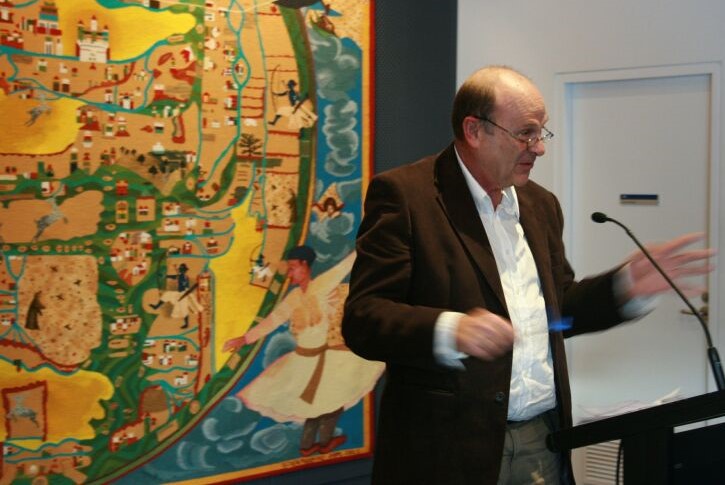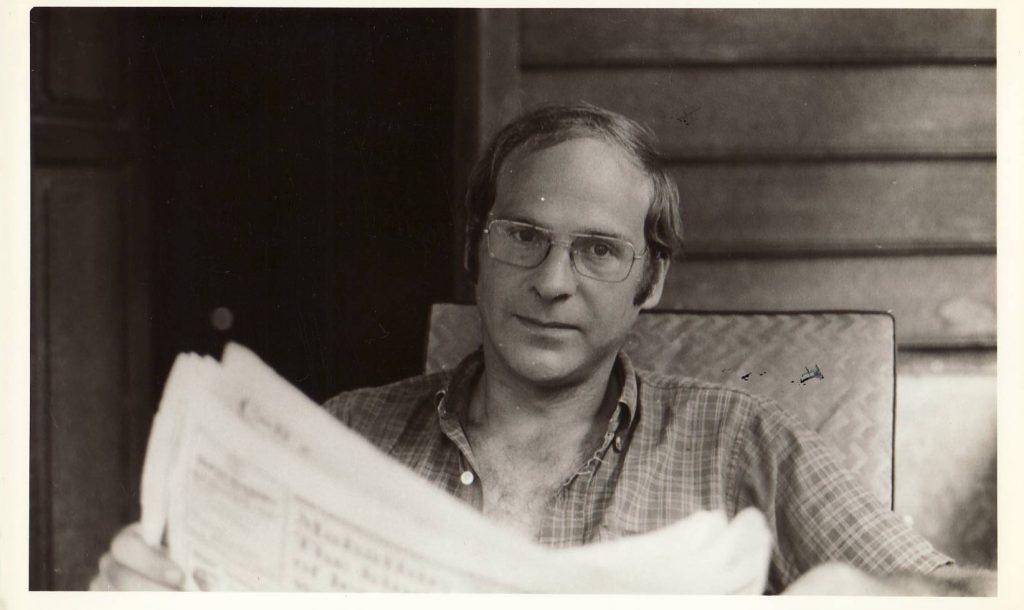Joel S. Kahn passed away after a long illness on 1 May, 2017.
Joel had a remarkable career, one marked by an enduring commitment to anthropology, Southeast Asian studies, and comparative social sciences. In recognition of his achievements, Joel was elected a Fellow of the Academy of the Social Sciences in Australia in 1995.
Foremost in our minds, though, remains his commitment to the nurturing of young scholars in the field. His considered advice and counsel, dispensed with wisdom and farsightedness, marked his impact on students. As a supervisor he was the calm captain steering PhDs, sometimes at the risk of going astray, back on course to successful completion. Joel’s generosity of ideas and professional support continued beyond our PhDs, as Joel maintained close intellectual and personal ties with many of his former postgraduates.
Joel received his own PhD in Social Anthropology from the London School of Economics and Political Science in 1974. He taught briefly at Goldsmith’s College, London from 1972-1974, and at University College London from 1974 to 1986, before moving to Australia to take up the Chair of Anthropology at Monash University from 1986 to 1992. He was appointed Professor of Anthropology at La Trobe University in 1992, a post he held until his retirement in 2007.
As an anthropologist he was always ‘at home’ in multiple places and his fieldwork took him to Indonesia and Malaysia often. In Southeast Asia he found academic collaborators and students to work with him, making lasting friendships and leaving intellectual legacies. In addition, Joel held a number of visiting positions, including Professor of Anthropology at the University of Sussex (1998-2000), Visiting Professor, Asia Research Institute, National University of Singapore (2004), Visiting Professor in the Department of Sociology and William Lim Siew Wai Fellow in Cultural Studies, National University of Singapore (2010), as well at Humboldt University, Berlin, and Universitas Gadjah Mada, Yogyakarta, Indonesia.
Anthropology can be a solitary endeavor and Joel was blessed to have found a partner in life and academic pursuits in Maila Stivens. From the early work amongst the Minangkabau in Sumatra to later work in urban Malaysia, they managed to work together, travel together, and remain together.

After his retirement, Joel was appointed Emeritus Professor of La Trobe University and Honorary Professorial Fellow at the University of Melbourne from 2011-2016.
He never stopped working, or pursuing the great questions of our time. Joel’s scholarship was marked by a critical, comparative approach to modernity. An abiding concern in his work was the need to apply a critical and comparative approach to the analysis of the social and cultural constitution of modernity. Joel did not spare anthropology and modern social theory from his critical gaze; emblematic of his writing is an appreciation of how anthropology is implicated in the culture of modernity and its exclusionary dynamics. His critique of universalising logics, concepts and rights was a hallmark of his work. This lead on to further endeavors to make room for alternative worldviews, be they based on class, race or cultural differences.
These themes are apparent across the spectrum of Joel’s writings and were a uniting thread across the breadth of interests apparent in his monographs. In general, Joel’s writing can be grouped under the following themes: critical, comparative studies of class and economy (Minangkabau Social Formations: Indonesian Peasants and the World Economy, Cambridge University Press (1980)); the anthropology of modernism and modernity (Constituting the Minangkabau: Peasants, Culture and Modernity in Colonial Indonesia, Berg (1993); Culture, Multiculture, Postculture, Sage (1995); Modernity and Exclusion, Sage (2001)); cosmopolitanism and nationalism (Other Malays: Nationalism and Cosmopolitanism in the Malay World, Asian Studies Association of Australia in association with Singapore University Press, NIAS Press and University of Hawaii Press) (2006)) and modernity and religion (Asia, Modernity, and the Pursuit of the Sacred: Gnostics, Scholars, Mystics, and Reformers, Palgrave (2015)).
 Joel helped shape a path forward for anthropology to be critical and situated firmly within its ethnographic field, putting the onus on anthropologists to engage seriously with their interlocutors in an intercultural field or interstitial space we create together. His call for a cosmopolitan anthropology has been heeded and anthropology continues to push the boundaries of what that can mean. Many of Joel’s writings on this subject have had a profound impact on Southeast Asianists and projects to rediscover cosmopolitan histories in times of heightened national and exclusionary discourses. His focus on the quotidian rather than elite cosmopolitanism also redirects how anthropologists in the region have thought about identity and multiculturalism. More importantly, it drew attention to the long history and continued ability of ordinary people to transgress state sanctioned identities.
Joel helped shape a path forward for anthropology to be critical and situated firmly within its ethnographic field, putting the onus on anthropologists to engage seriously with their interlocutors in an intercultural field or interstitial space we create together. His call for a cosmopolitan anthropology has been heeded and anthropology continues to push the boundaries of what that can mean. Many of Joel’s writings on this subject have had a profound impact on Southeast Asianists and projects to rediscover cosmopolitan histories in times of heightened national and exclusionary discourses. His focus on the quotidian rather than elite cosmopolitanism also redirects how anthropologists in the region have thought about identity and multiculturalism. More importantly, it drew attention to the long history and continued ability of ordinary people to transgress state sanctioned identities.
Joel was a prolific writer. In addition to publishing 60 journal articles and book chapters, he wrote six sole-authored monographs and edited six books, including (with J.R. Llobera) The Anthropology of Pre Capitalist Societies, Macmillan (1981); (with F. Loh) Fragmented Vision: Culture and Politics in Contemporary Malaysia, Allen and Unwin (Asian Studies Association of Australia series), US edition, University of Hawaii Press (1992); and Southeast Asian Identities: Culture and the Politics of Representation in Indonesia, Singapore, Malaysia and Thailand, Institute of Southeast Asian Studies (jointly published with Taurus, UK and St Martins Press, USA) (1998).

Joel has left a rich and deeply textured set of writings that will continue to resonate and provide insight in the future. His profound knowledge of anthropology, social theory and popular culture gave rise to Joel’s singular ability to see their entanglement in the social and historical processes of modernity both here in the global North as well as the global South.
Joel’s former postgraduates and colleagues will miss his generosity, support, and intellectual acuity. Our lives, too, will be duller without his sense of humour and keen, wry observations on life. Our deepest sympathy go to Joel’s wife and fellow anthropologist, Maila Stivens, as well as to their daughters, Sophie and Jess. Joel cherished his family and, in recent years, the addition of two young grandchildren brought him great joy.
……………
All pictures reprinted with kind permission of Maila Stivens
……………
Dr Gerhard Hoffstaedter is Senior Research Fellow (DECRA) at the University of Queensland.
Dr Wendy Mee is Senior Lecturer and Convenor of Sociology at La Trobe University.
 Facebook
Facebook  Twitter
Twitter  Soundcloud
Soundcloud  Youtube
Youtube  Rss
Rss 